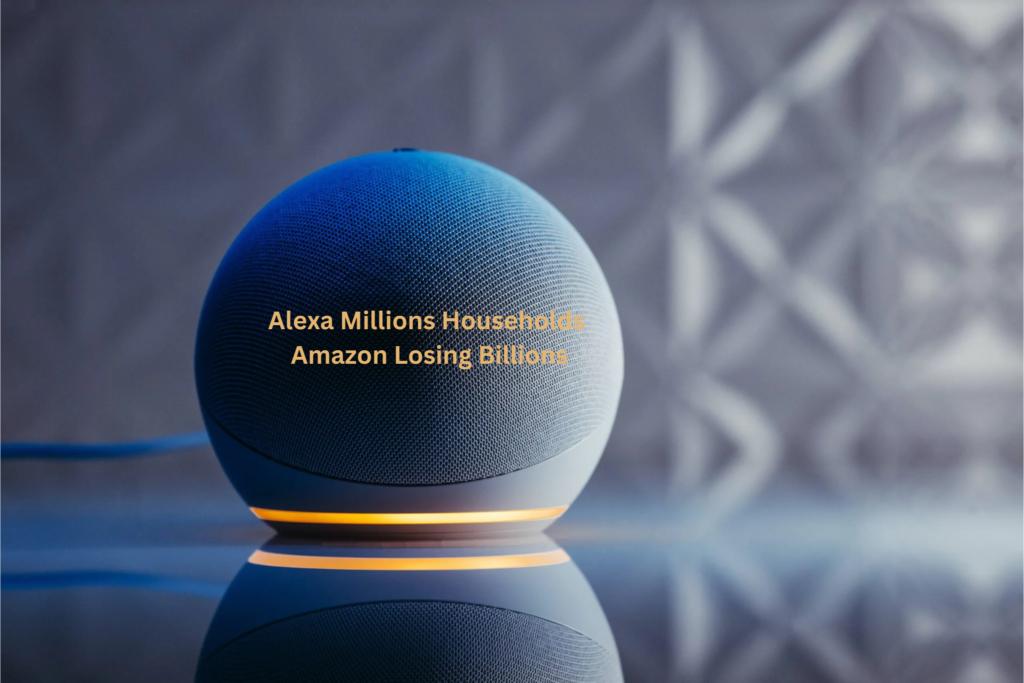
Introduction to Alexa and Amazon’s Financial Losses
In a world where technology seamlessly integrates into our daily lives, Amazon’s Alexa has emerged as a household staple. With its ability to play music, control smart devices, and answer endless questions, millions of households have welcomed this virtual assistant into their homes. However, behind the sleek interface and impressive features lies an unsettling truth: Amazon is grappling with significant financial losses linked to Alexa. As we delve deeper into Alexa Millions Households Amazon Losing Billions to know this fascinating topic, we’ll explore how artificial intelligence is reshaping home life while uncovering the challenges that come with it. What does this mean for consumers and the tech giant itself? Let’s take a closer look at Alexa Millions Households Amazon Losing Billions to know the rise of Alexa in our homes and what it might cost Amazon in the long run.
The Rise of Artificial Intelligence in the Home
The rise of artificial intelligence in the home has transformed everyday living. Smart devices have become more than just gadgets; they are now integral parts of life.
From voice assistants to smart thermostats, AI is reshaping how we interact with our environments. People can control nearly everything with a simple command or touch.
These innovations promise convenience and efficiency, making tasks like grocery shopping and scheduling easier than ever before. The integration of machine learning allows these devices to adapt to individual preferences over time.
Families rely on AI for security, entertainment, and even cooking assistance. As technology advances, the boundaries between human effort and machine productivity continue to blur.
This shift toward a connected lifestyle raises intriguing possibilities for future homes. It also invites questions about privacy and data safety as reliance on these tools grows stronger each day.
The Impact of Alexa on Households
Alexa has undeniably transformed the way households operate. Families now rely on this voice assistant for daily tasks, from setting reminders to controlling smart home devices. The convenience it offers is unmatched.
Imagine asking Alexa about the weather while cooking dinner or enjoying music with just a command. This instant access reshapes routines and enhances productivity.
Moreover, Alexa fosters connectivity among family members. It allows everyone to stay in touch through Announcements or Drop In features, bridging gaps that technology often creates.
However, there’s more to consider than just ease of use. The integration of such technology also raises questions about privacy and dependency within homes.
As families embrace this innovation, they find themselves navigating new dynamics influenced by how they manage their time and interactions. Each household adapts differently to these changes brought forth by AI-driven assistants like Alexa.
How Amazon is Losing Billions with Alexa
Amazon’s investment in Alexa has reached staggering amounts. The costs of developing smart speakers, maintaining servers, and enhancing AI capabilities are monumental. Despite millions of households embracing the technology, profitability remains elusive.
Consumers expect free services alongside their devices. This model pressures Amazon to absorb hefty operational expenses without a clear revenue stream from Alexa alone. Each purchase of an Echo device is often subsidized by the company to attract users.
Moreover, ongoing updates and improvements require continuous funding. As competitors ramp up innovations in artificial intelligence, maintaining market share becomes increasingly expensive for Amazon.
The struggle intensifies as consumers seek alternatives that might offer better functionality or privacy features. This shift could lead to even greater losses if Alexa struggles to retain its user base amid rising concerns about data security and surveillance practices.
Consumer Concerns and Controversies Surrounding Alexa
Consumer concerns about Alexa extend beyond its convenience. Privacy issues loom large, as many users worry that their conversations are being recorded and stored without consent. The notion of an always-listening device can feel intrusive to some households.
Security is another pressing matter. Reports of unauthorized access and data breaches have raised alarms among users. People question how secure their personal information truly is when it’s connected to the internet.
Additionally, there are ethical debates surrounding artificial intelligence in homes. Some argue that relying on smart assistants diminishes human interaction and critical thinking skills, especially for children growing up with technology at their fingertips.
Moreover, instances of misinterpretations or inappropriate responses from Alexa have sparked discomfort among families. When a device fails to understand commands or delivers unexpected answers, it raises eyebrows about its reliability in everyday situations.
Competitors in the Smart Home Market
The smart home market is buzzing with competition. Companies are innovating rapidly to capture consumer interest and loyalty.
Google’s Nest devices have carved out a significant niche. They offer seamless integration with Google Assistant, appealing to tech-savvy households seeking advanced functionality.
Apple isn’t sitting back, either. With its HomeKit ecosystem, it emphasizes security and privacy—an essential selling point for many users today.
Samsung’s SmartThings platform stands out by supporting a wide range of third-party devices. This versatility attracts consumers looking for custom solutions tailored to their unique needs.
Even newcomers like Wyze are making waves with affordable yet feature-rich products that challenge established brands’ pricing strategies.
As these competitors continue evolving, they push boundaries in innovation and service quality, raising the stakes for all players involved in this dynamic industry landscape.
Conclusion: What Does the Future Hold for Amazon and Alexa?
As we look ahead towards Alexa Millions Households Amazon Losing Billions, the future of Amazon and Alexa remains uncertain yet intriguing. With millions of households embracing smart technology, Alexa has become a household name. However, the financial losses indicate that there are significant hurdles to overcome.
The rise of artificial intelligence offers tremendous potential for innovation, but it also comes with increased scrutiny and competition. Consumer concerns about privacy and functionality continue to challenge Amazon’s growth in this sector. Additionally, competitors are rapidly developing their own smart home solutions, which could further erode Amazon’s market share.
For Amazon to regain its footing and turn around these billion-dollar losses, strategic adaptations will be essential. This might involve enhancing user trust through improved data security measures or diversifying features that resonate more deeply with consumers’ needs.
As technology continues to evolve at breakneck speed, how effectively Amazon navigates these challenges will determine not only the fate of Alexa but its position in the broader realm of smart home devices as well. The journey ahead is bound to be fascinating with numerous possibilities on the horizon.






